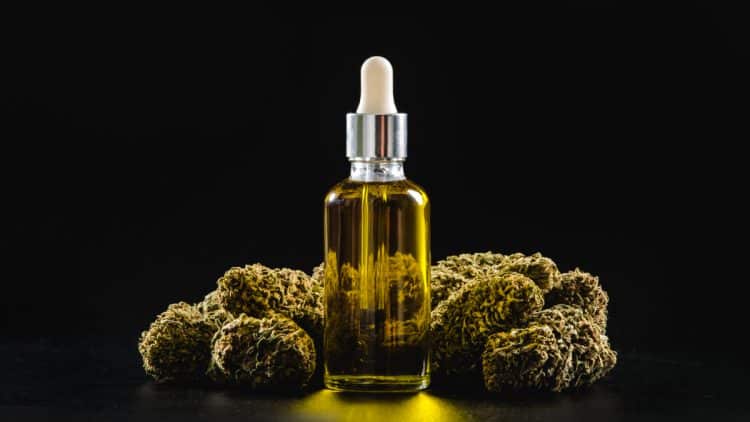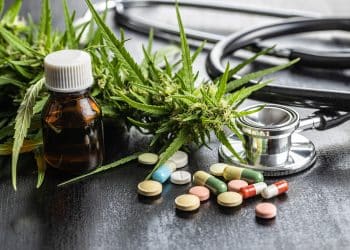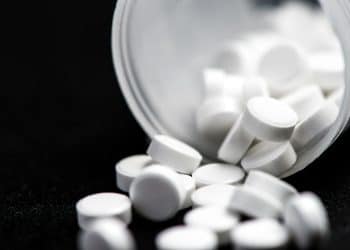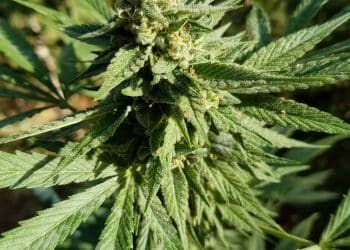The opioid crisis continues to wreak havoc on public health, with limited non-opioid medication options available to address this epidemic. One potential solution gaining scientific attention is cannabidiol (CBD). Recent studies suggest that CBD could play a significant role in reducing cue-induced cravings and anxiety, two critical features of addiction contributing to relapse and continued drug use.
CBD for Heroin and Opioid Addiction
Considering CBD and other alternative treatment options as an intervention for heroin addiction is incredibly important considering the current state of opioid addiction treatments. Current heroin and opioid addiction treatment methods have several drawbacks that often hinder their effectiveness.
Traditional treatments such as methadone and buprenorphine can lead to physical dependence, making it challenging for individuals to completely wean off these substances. This often results in trading an addiction to one substance for another. These treatments come with the risk of severe withdrawal symptoms, which can discourage individuals from pursuing them. Despite medication assistance, some individuals continue to misuse opioids or relapse, indicating a lack of complete efficacy. Access to treatment can also be limited due to the stigma associated with opioid use disorder and the cost of treatment. Lastly, these treatments do not necessarily address the psychological aspects of addiction, leaving a gap in comprehensive care.
In contrast, CBD has shown promise in mitigating cravings and anxiety without the risks associated with conventional treatments. Its non-addictive properties and favorable safety profile make it a potentially safer alternative for individuals struggling with heroin or other opioid use disorders.
Research on CBD and Opioids
A study on CBD and heroin use disorder published in The American Journal of Psychiatry provides valuable insights into how CBD could combat heroin addiction. The double-blind randomized placebo-controlled trial examined the impacts of acute, short-term, and protracted CBD administration on drug cue-induced cravings and anxiety in drug-abstinent individuals with heroin use disorders.
The study found that acute CBD administration significantly reduced both craving and anxiety induced by the presentation of salient drug cues compared to neutral cues. These effects were sustained seven days after the final short-term CBD exposure. Additionally, CBD reduced physiological measures of heart rate and salivary cortisol levels triggered by drug cues, with no significant adverse effects.
While the results are promising, more research is needed to fully understand CBD’s efficacy in treating heroin addiction specifically. The study was exploratory and had a relatively small sample size. While CBD was well-tolerated and demonstrated no serious adverse effects, its long-term safety profile remains largely unknown.
Alternatively, research on CBD and opioid addiction is also showing that CBD can help manage opioid withdrawal symptoms. One scientific review, published in the Cannabis Cannabinoid Research journal, examined over 41 published clinical studies evaluating the effects of CBD on opioid withdrawal. Researchers concluded that there is increasing evidence hinting at the potential of CBD to enhance standard opioid detox protocols by alleviating acute and long-lasting symptoms related to opioid withdrawal. However, most of these conclusions are drawn from preclinical research or small-scale clinical trials. Therefore, it is crucial to conduct more comprehensive, well-structured, randomized-controlled studies to fully understand CBD’s impact on managing symptoms associated with opioid withdrawal. [2]
The Future of CBD and Addiction Treatment
Despite these limitations, the evidence for CBD as a treatment for heroin and other opioid use disorders is compelling. Its ability to reduce craving and anxiety, and help manage opioid withdrawal symptoms, combined with its safe pharmacological profile and non-addictive properties, indicates that this cannabinoid holds significant promise for addiction treatment.
Although more research is needed, CBD’s potential to reduce cue-induced cravings and anxiety offers a glimmer of hope in the fight against the opioid crisis. With its promising therapeutic profile, CBD could potentially transform the landscape of addiction treatment in the years to come.
References:
- Hurd, Y. Et al. Cannabidiol for the Reduction of Cue-Induced Craving and Anxiety in Drug-Abstinent Individuals With Heroin Use Disorder: A Double-Blind Randomized Placebo-Controlled Trial. The American Journal of Psychiatry. 2019. Volume 176, Issue 11, pages 911-922. https://ajp.psychiatryonline.org/doi/10.1176/appi.ajp.2019.18101191 Times Cited: 89 Journal Impact Factor: 17.7
- Kudrich, C. Et al. Adjunctive Management of Opioid Withdrawal with the Nonopioid Medication Cannabidiol. Cannabis Cannabinoid Research. 2022; 7(5): 569–581. Times Cited: 2 Journal Impact Factor: 3.7











